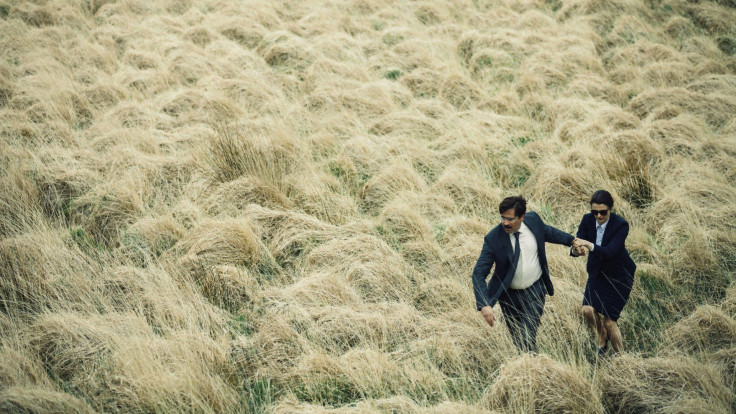Director of The Lobster Yorgos Lanthimos took the stage after the Fantastic Fest 2015 premiere of his absurdist dystopian dark comedy to explain exactly how the hell a movie about the threat of lobster transformation can say so much about human love and relations.
Director Yorgos Lanthimos Talks The Lobster at Fantastic Fest 2015
The Lobster is about a dystopian society where you either find love and companionship or risk being transformed into an animal. While The Lobster has a typically Lanthimos-ian premise it also represents a major shift for director Yorgos Lanthimos. Previously known for a string of absurdist Greek indies including Alps and Dogtooth, The Lobster is in English and loaded with familiar faces, including Colin Farrell, Rachel Weisz, John C. Reilly, and Olivia Colman. “I was, in the beginning, quite anxious about that,” Lanthimos told the Fantastic Fest audience about working in English with major American actors, “Colin, we Skyped… It was much easier and much more pleasant than I expected.”
The Lobster Trailer
But the real challenge with The Lobster was presenting a surreal world that still spoke to our own relationship with love and our emotions. “ We try and explore these ideas and themes under extreme conditions, we think that reveals more about them.” Lanthimos described his desire to both speak to universal themes and present something truly new to viewers’ eyes, creating his own worlds that are “hopefully complete… you pick it up, it’s there.”
Blood, Love, and Lobster
One of the signatures of a Yorgos Lanthimos movie is dark, often bloody, comedy. Even though The Lobster is about love, it’s loaded with some bloody and shocking moments. “You just have to find the right balance I guess and you don’t really think out what that is. You just put it in.” Lanthimos sees The Lobster’s dark streak as about acquiring “this other, third tone” by “layering the film with these contradictory things.”
Yorgos Lanthimos seems like a big weirdo and it makes me happy.
— Matt Patches (@misterpatches) September 26, 2015Still, while The Lobster may feature both a murder and a suicide, it is still primarily about the complexities of romantic love. “We are being critical to how it works, but we also love love and the characters.”
In the end even the director of The Lobster—which exhibits astonishing control over tone, performance, and message—finds love and its artistic expression essentially mysterious. “This time we wanted to do something about relationships and love and somehow we did that.”
The Lobster provides no simple answers. When asked his own stance on love by a 2015 Fantastic Fest attendee, Lanthimos said simply, “The film is my answer.”


















